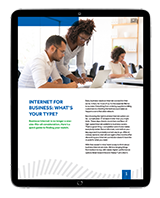
Enduring a Business Audit: What to Expect and How to Keep Calm Through the Process
It's a phrase that can send a chill down any business owner's spine: "audit." While the odds of being audited by the IRS vary depending on different factors—it's still a possibility that every business should be prepared for.
With tax season freshly behind us, now is the perfect time to understand what an audit actually entails and how to approach it with calm, confidence, and clarity.
The good news? An audit doesn't have to be a nightmare. With the right preparation and mindset, it can be a manageable—even educational—experience. Here's what to expect, how to get ready, and how to keep your cool if your number comes up.
What Is a Business Audit, Really?
A business audit is a formal review of your financial records and tax filings to ensure accuracy and compliance with federal or state tax laws. The IRS may initiate an audit because of a red flag in your return, a random selection, or a mismatch in information provided by third parties (like W-2s, 1099s, or bank statements).
There are three common types of audits:
Correspondence Audit
The simplest kind, done by mail. The IRS requests specific documents or clarification on a limited issue, like a deduction.
Office Audit
Conducted at a local IRS office. You're asked to bring in specific records for review.
Field Audit
The most comprehensive, done at your place of business. An IRS agent reviews your books, operations, and supporting documents in person.
How to Prepare (Before and After You're Notified)
The best way to handle an audit is to prepare as if one could happen any year. Good recordkeeping and organization go a long way in making the process smoother. Here's how to be audit-ready at all times:
1. Maintain Complete and Accurate Records
Save receipts, invoices, payroll records, and bank statements for at least 3–7 years. Ensure your bookkeeping software is accurate and up to date.
2. Document Deductions and Business Expenses
Be ready to explain and substantiate any deductions—especially those that are larger or less common (like home office use, travel, or meals).
3. Work With a Qualified Tax Professional
A CPA or enrolled agent can help you file accurately, reduce audit risk, and represent you if an audit occurs.
If you are audited, don't panic. Instead:
Review the Audit Notice Carefully
Understand what's being requested and what the scope of the audit is. Often, it's limited to specific line items or returns.
Gather Documentation Promptly and Neatly
Organize your records to match what's being asked. The more clearly you present your information, the smoother the process.
Stay Professional and Courteous
Whether by mail or in person, your interactions with the IRS should be calm and respectful. Try to remain cooperative and thoughtful about how you communicate with the IRS representative.
What an Audit Is Not
An audit is not an accusation. It doesn't necessarily mean you've done anything wrong. Many audits end without changes, and some even result in refunds. The IRS is simply verifying the accuracy of your return. Think of it less like a courtroom drama and more like a financial fact-check.
How to Stay Calm and Carry On
Breathe and Take It One Step at a Time
Don't let fear of the unknown overwhelm you. Many audits are resolved with minimal disruption.
Lean on Your Accountant or Advisor
If you have a tax professional, they can handle much of the communication on your behalf and help navigate any complexities.
Learn From the Process
Audits, while inconvenient, can shed light on better bookkeeping habits or areas where your records need tightening. Use it as a moment to strengthen your business practices.
Final Word
While the thought of an audit can feel daunting, it doesn't have to derail your business—or your peace of mind. With solid records, professional support, and a calm, methodical approach, you can get through it just like any other business challenge.
Legal disclaimer: Cable One, Inc. DBA Sparklight does not provide tax, legal, or accounting advice. The content provided here is for informational purposes only, and is not intended to provide, and should not be relied on, for tax, legal, or accounting advice. You should consult a tax, legal, or accounting professional for related advice if needed. Nothing herein is intended to guarantee a specific outcome of any audit and should not be interpreted as such.
The trends, insights, and solutions you need to grow your business.
By signing up, you’re subscribing to our monthly email newsletter, The
Wire. You may unsubscribe at any time.
Your information stays safe with us. Learn more about our privacy
policy.











![[#MSP_NAME#] Logo](/themes/sparklight_business/images/transition-logos/migration-banner-logo-[#MSP_CD#].png)
